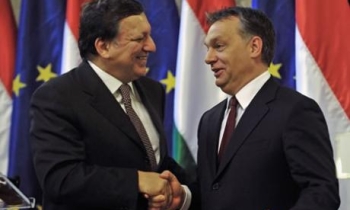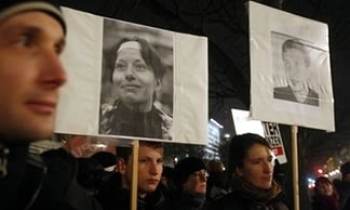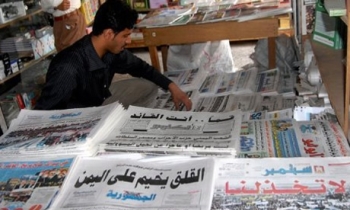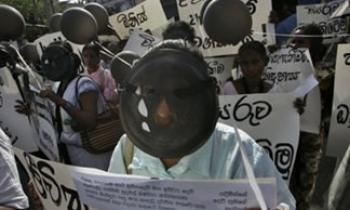More than 50 journalists and media staff have been killed worldwide this year. But it is not that threats to press freedom are rampant only in the so-called places deemed perilous for journalists to report from. The silent terrorisation now comes from Western governments trying to hide potentially illegal or damaging actions and statements.

The International Federation of Journalists (IFJ) has expressed alarm at the mounting attacks on investigative journalists and whistleblowers by Western governments. "It is unacceptable to see countries like the United States, Great Britain, and Denmark trying to intimidate and stifle independent journalism," said Aidan White, IFJ General Secretary, "while others, like Germany and the Netherlands, are caught out snooping on the media and tapping the telephones of journalists."
A global crackdown on investigative journalism led by countries that are supposed to be models of democracy, White said, is repressive and depriving people of their basic rights – "most importantly the right of citizens to know what their government is doing."
There have been numerous attacks on the media in the US and Europe in recent months, with governments often defending their actions in the name of protecting public safety or "fighting the war on terrorism."
The latest case involves the New York Times, which has faced a barrage of heavy criticism from President George Bush and other Republican hardliners for its detailed expose of US security services monitoring hundreds of thousands of international bank transactions. Some Republican lawmakers say criminal charges should be brought against the reporters who broke the story.
According to an Associated Press (AP) report, the Washington Times says the Justice Department is also investigating New York Times and Washington Post reporters — the Times for disclosing in 2005 that the government was monitoring Americans’ phone calls without court warrants and the Post for reporting that the CIA was operating secret prisons for suspected terrorists in eastern Europe. The CIA in April fired a top analyst as an alleged source for the reports on covert prisons.
In the UK, it was revealed at the weekend that the government is planning a new crackdown to strengthen official secrecy laws to prevent whistleblowers from revealing information about government policy. Officials with access to sensitive information will no longer be able to claim they act in the public interest by exposing wrongdoing or unlawful acts by the government.

The government has been embarrassed by a spate of leaks revealing concerns about the legality of the US-led invasion of Iraq, including concerns allegedly expressed by British Prime Minister Tony Blair about US tactics and revelations to the media of a classified memo containing comments President Bush made about bombing broadcaster al-Jazeera. After the Daily Mirror reported on that memo last November, Britain’s attorney general warned other editors they could face prosecution if they divulged any more of the leaked document.
In Denmark, Michael Bjerre and Jesper Larsen of the daily newspaper Berlingske Tidende face two years in prison later this year in an unprecedented trial because they reported in 2004 that before joining the Iraq invasion, the Danish government was told by military intelligence there was no firm evidence of banned weapons in Iraq. Bjerre and Larsen have been charged with "publishing information illegally obtained by a third party" under the Criminal Code. The Danish whistleblower, a former intelligence officer, was convicted and jailed for four months last year.
In a series of articles published in February 2004, the journalists quoted excerpts from Danish military intelligence reports, given to them by agent Frank Soeholm Grevil, which denied the availability of credible information on the existence of weapons of mass destruction in Iraq before the March 2003 military intervention by British and United States troops. The existence of such weapons, which it is now acknowledged did not exist, was the principal argument put forward by Prime Minister Anders Fogh Rasmussen to justify Danish involvement in the invasion.
“This is, regrettably, a classic example of how whenever a Government is faced with embarrassement because media report accurately on a matter the public importance, they will use the national security and secrecy rules to save their faces,†IFJ had then said. “It makes a mockery of attempts at European Union level to balance fundamental rights such as press freedom, and legitimate actions to protect public safety.â€
These actions, coupled with the news that journalists in the Netherlands have had had their communications tapped by security services and that in Germany spies were planted in media to stop leaks to the press, are raising concerns that there is a concerted effort across the Western world to try to stifle voices of dissent within government and to prevent journalists from exposing wrongdoing.

A German parliamentary report May 26 disclosed Berlin’s foreign intelligence agency had been illegally spying on German journalists since the 1990s to find the sources of leaks. Two journalists in Romania face up to seven years in prison for possessing classified documents about the Romanian military’s operations in Iraq and Afghanistan, even though their newspapers never published the information. De Telegraaf, the Netherlands’ biggest paper, had to go to court to win a ruling last month ordering the Dutch secret service to stop wiretapping calls of two reporters who obtained leaked information about official corruption.
"When governments bully their journalists, censor the media and persecute whistleblowers, they seriously damage the watchdog role of journalism," said White. "In turbulent times we need more informed, professional and accurate reporting about the work of government, not gags and intimidation."
The IFJ, White said, believes that the credibility of Western governments as torchbearers for democracy and press freedom is being seriously undermined by these latest actions. "The United States and Europe need to lead by example," he said. "The enemies of press freedom and open government are the only winners when journalists are put under pressure in this way."









